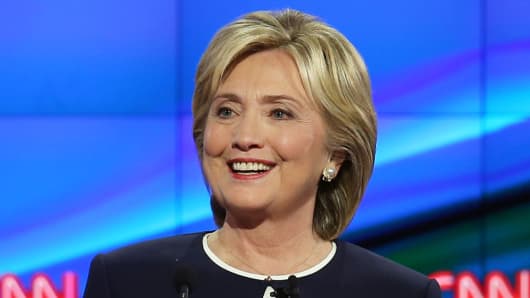Weeks before the Democratic candidates took stage in Las Vegas, their campaigns were busy preparing for the equally important, off-air conversations that saturate social-media platforms. Based solely on the candidates' use of social media during the debate, there was no contest: Hillary Clinton was the clear victor.
Successful social-media strategists understand that viral opportunities are fleeting. The window of opportunity often disappears minutes after an event. Successful rapid responses appear to be spontaneous, but most are carefully constructed and planned.





